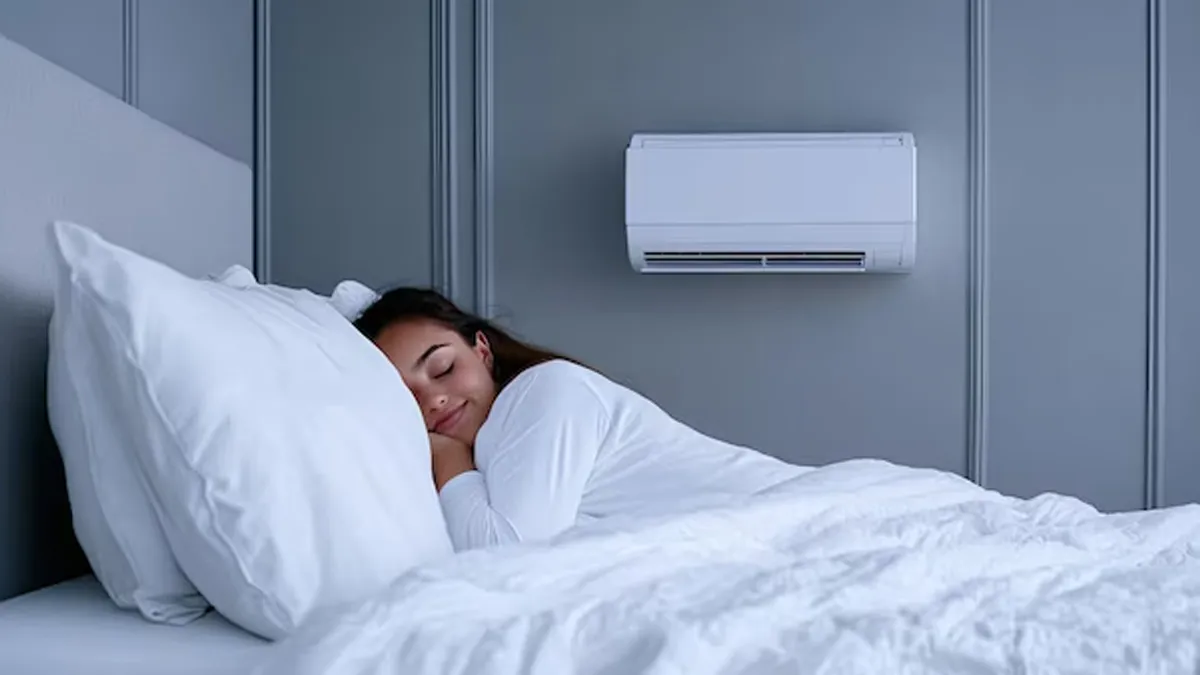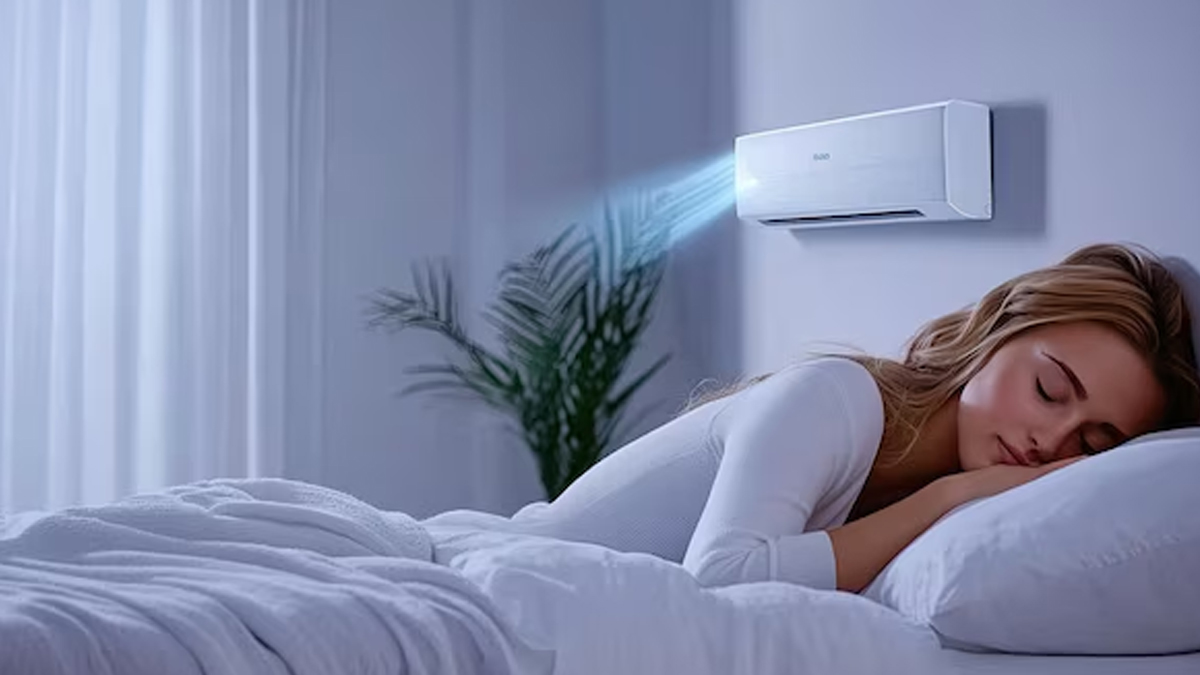
When it’s hot outside, sleeping without the AC feels impossible. The cool blast helps you sleep, stops you from tossing and turning, and keeps you from waking up drenched in sweat. However, most people wake up with a dry, scratchy throat, and maybe even a bit of irritation in your nose. If you are familiar with this, here is a breakdown of why this happens, what’s going on with your body, and what you can do to prevent your AC from turning into a sleep-time saboteur.
Table of Content:-
Why Do You Have Sore Throat After Sleeping In AC?
1. Cold Air Dries Out Your Throat

Air conditioners remove moisture from the air. As they cool the air, they also pull out humidity, making your bedroom feel less stuffy, but also much drier. And when the air you breathe in overnight is lacking moisture, your throat, nasal passages, and mouth can dry out too.
If you sleep with your mouth open or snore (which many people unknowingly do), that dry air hits your throat even more directly, leading to that morning soreness.
2. You Might Be Dehydrated
A dry environment combined with inadequate hydration can lead to irritation. When you are not drinking enough water during the day, your body has fewer fluids available to keep your mucous membranes moist. Thus, sleeping in dry AC air for 7-8 hours can leave you with a sore throat by morning.
3. Dirty AC Filters Can Spread Irritants
How often do you clean your AC filter? Over time, ACs collect dust, pollen, and even mould particles, especially if you live in a humid climate or keep your windows open during the day. If those filters aren’t cleaned regularly, they can blow irritants directly into your room and airways, triggering allergies, throat irritation, or even mild respiratory symptoms.
According to the US Environmental Protection Agency (EPA), poor indoor air quality can be linked to sore throats, coughing, and other symptoms. Your AC unit, if not properly maintained, could be making your air dirtier rather than cleaner.
4. You're Sleeping with the AC Too Cold
Sleeping in a cool room helps your body relax, but there’s a sweet spot. If the temperature dips too low (below 22°C or 71°F), the chilly air can cause your throat muscles and nasal passages to constrict or dry out even more. For some people, cold air triggers a mild inflammatory response, making your throat feel sore or tight in the morning.
5. Air Flow Direction Matters
If your AC is pointed directly at your face or upper body, the constant stream of cold air hitting your nose and throat for hours can cause discomfort. Just like sitting too close to a fan can make your muscles feel stiff, sleeping with cold air blowing on you all night can leave your throat irritated and inflamed.
Also Read: UV Exposure and Retinal Stress: What Is The Link Between Heat Wave and Eye Damage
How to Fix It: Tips for AC Users Who Don’t Want a Sore Throat
Adjust the Temperature
- Set your AC to a comfortable 23–25°C (73–77°F): It’ll cool the room without over-drying the air or freezing your airways.
- Use a Humidifier: Balance the dryness of AC by placing a humidifier in your room. It’ll keep the air moist enough to prevent throat irritation.
- Clean Your AC Filters: Ideally, clean filters every 2–4 weeks during heavy AC use. This helps reduce dust, allergens, and microbes from recirculating.
- Stay Hydrated: Drink plenty of water throughout the day and keep a glass by your bedside. Hydrated mucous membranes are your best defense.
- Adjust Airflow Direction: Make sure vents or units aren’t blowing directly on your face or body. Angle them away or use a deflector if needed.
- Try Saline Nasal Spray Before Bed: If you tend to wake up dry, a quick spritz of saline spray can keep your nasal passages moist overnight.
[Disclaimer: This article contains information for informational purposes only. Hence, we advise you to consult your professional if you are dealing with any health issue to avoid complications.]
How we keep this article up to date:
We work with experts and keep a close eye on the latest in health and wellness. Whenever there is a new research or helpful information, we update our articles with accurate and useful advice.
Current Version